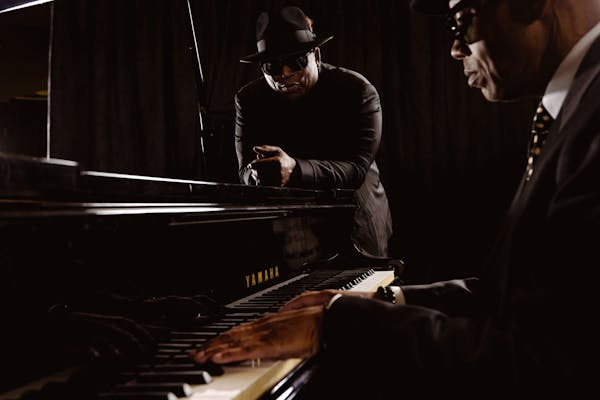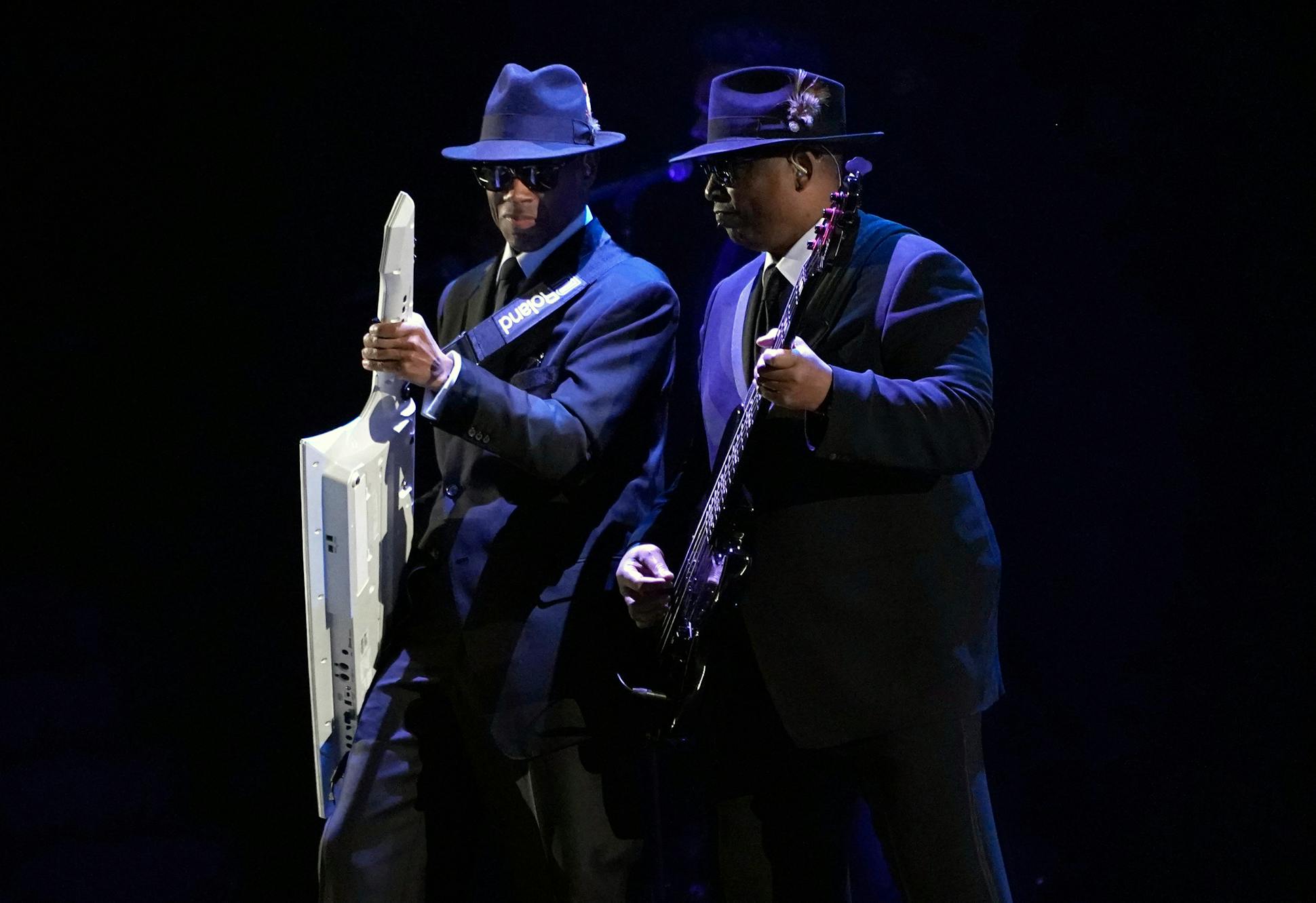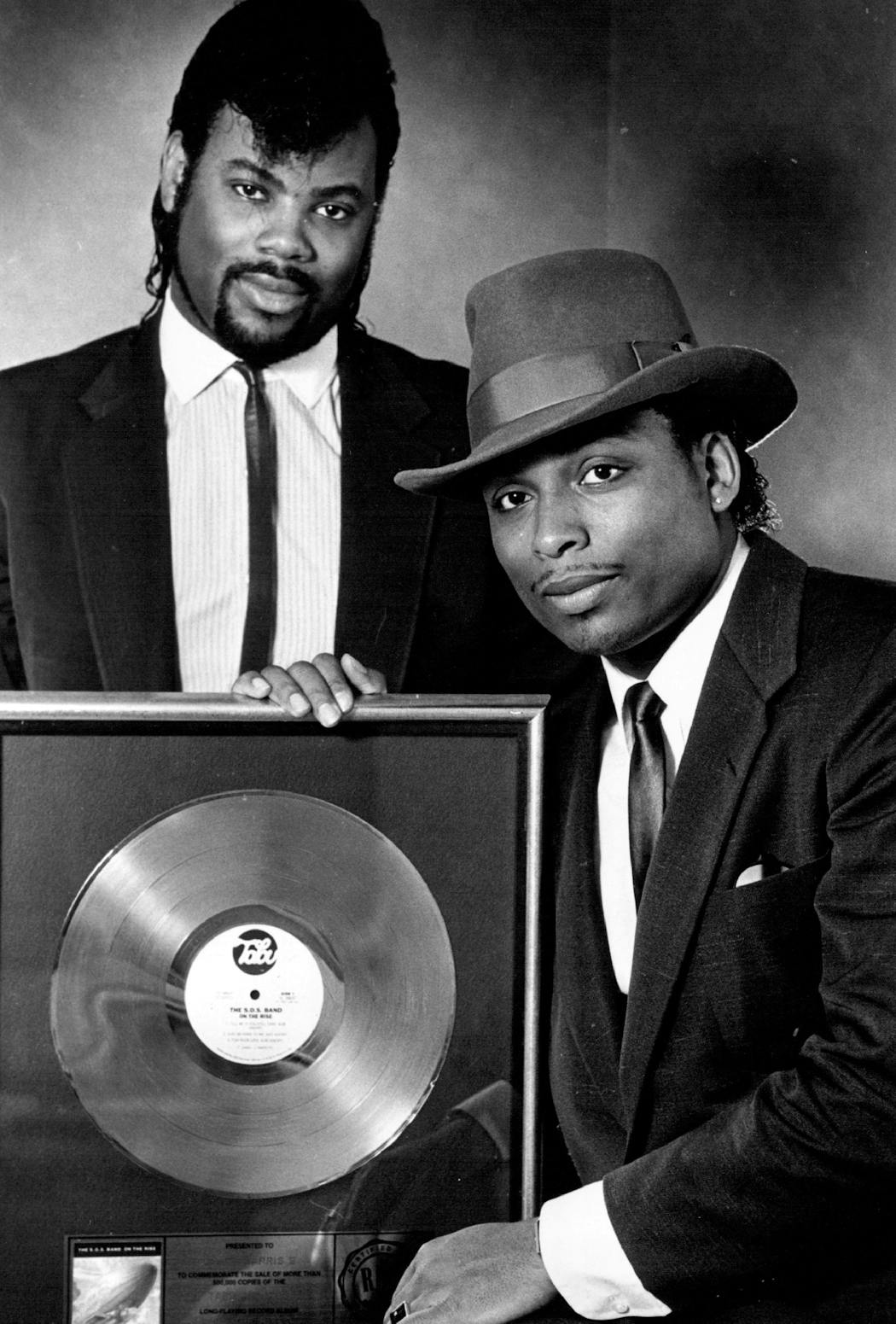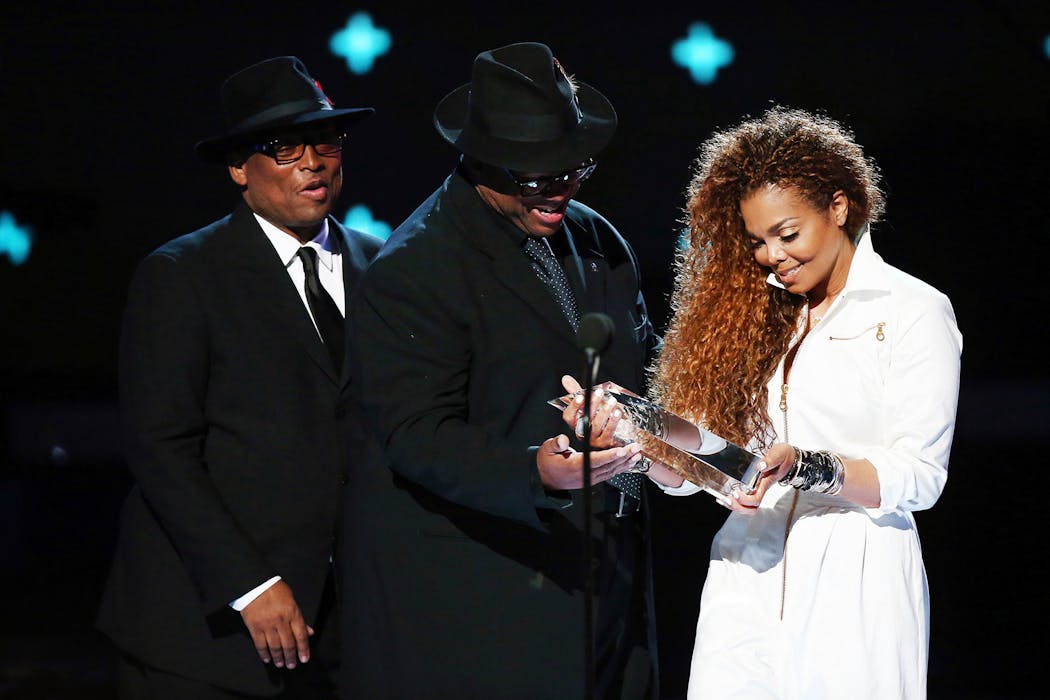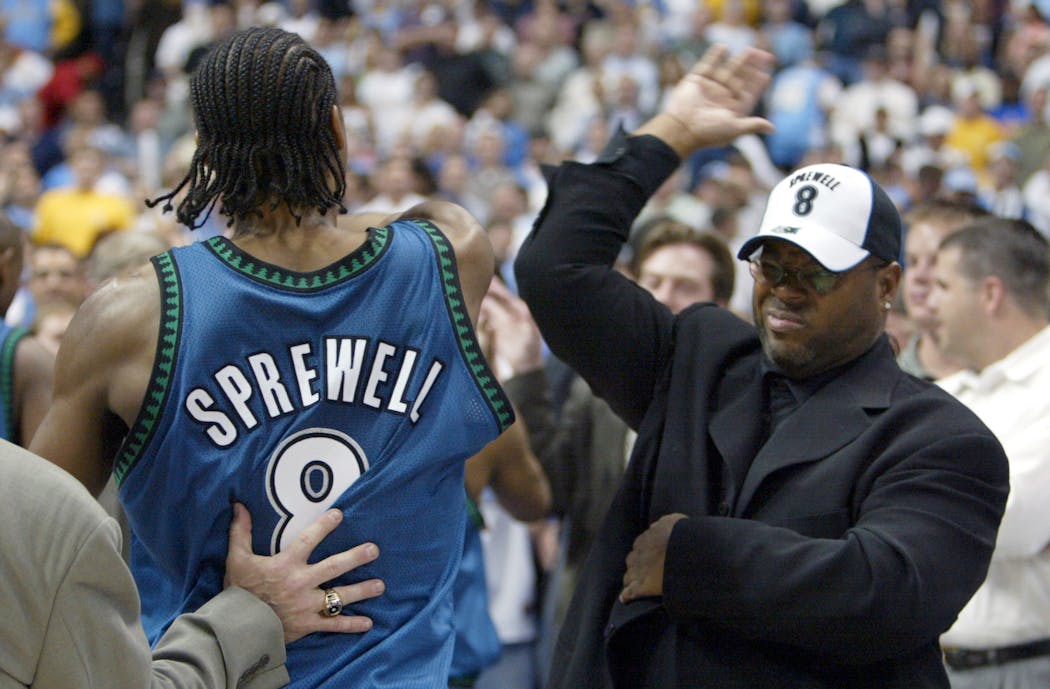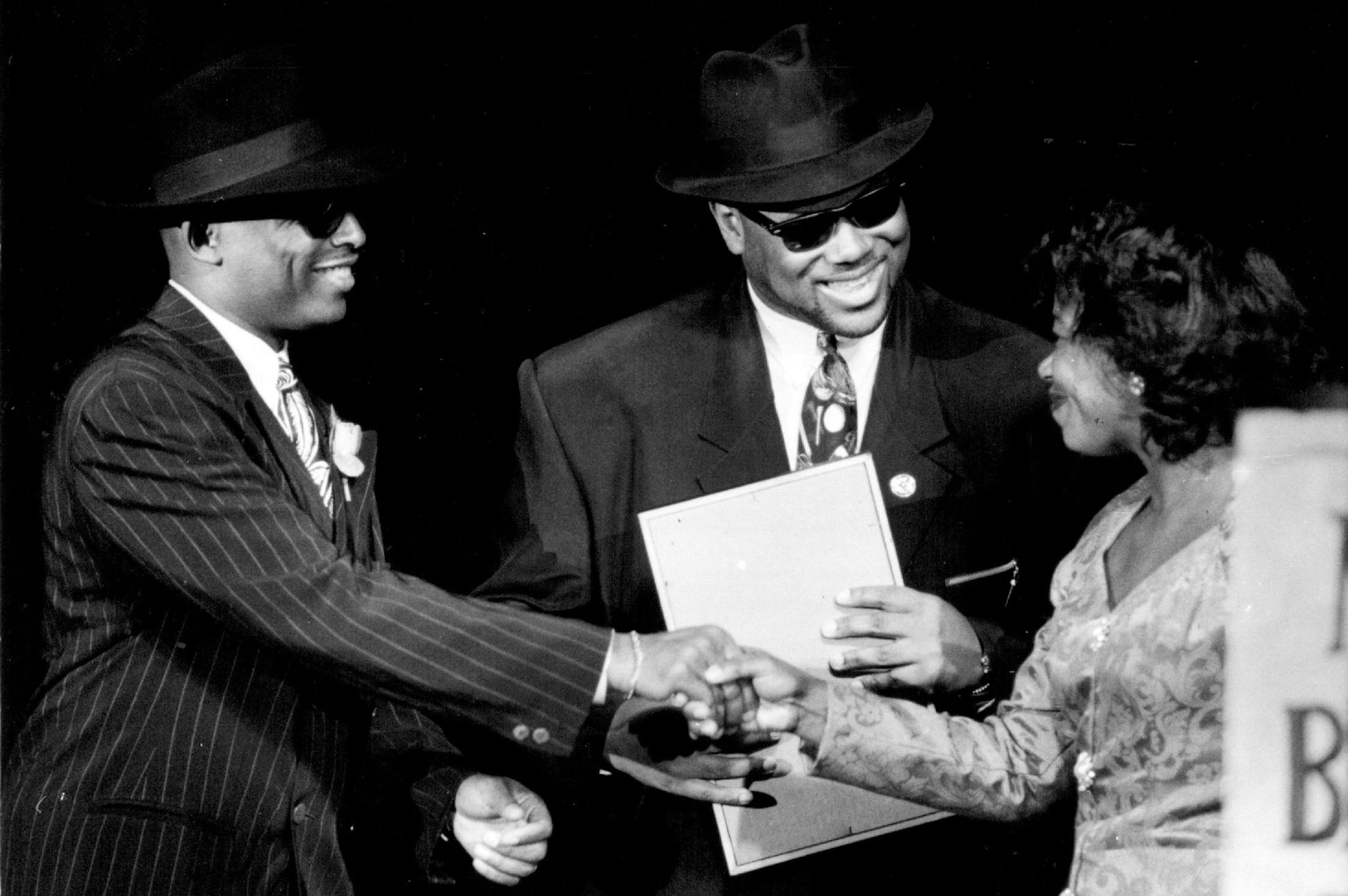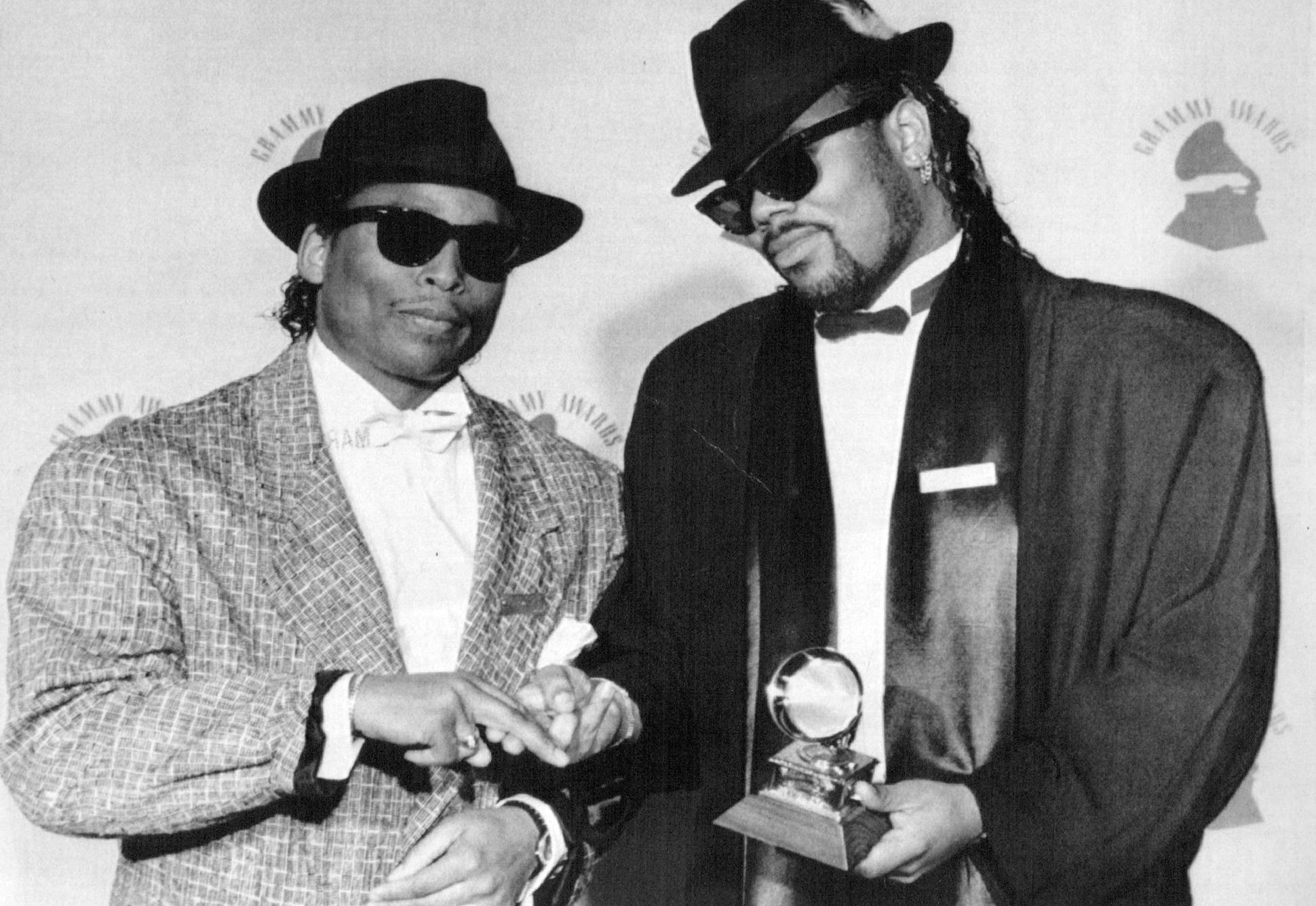It all started here in Minnesota for music moguls Jimmy Jam and Terry Lewis
They sealed the deal with a handshake. No contract, no lawyers. A 50-50 split on finances and credits, no matter who contributed what. That's one of the secrets to the partnership of Jimmy Jam and Terry Lewis. Equal partners.
It's Jam and Lewis. Like Lennon and McCartney. Goffin and King. Bacharach and David. Except Jam and Lewis aren't just songwriters, they're producers, too. Unlike those aforementioned songwriting pairs, they never broke up and never had a falling out in their 40-year Hall of Fame career.
"We never had an argument because an argument was one person wins, one person loses," Jam says. "I never want to see my partner lose at anything. So, we have disagreements, but a disagreement is something you solve."
Having covered Jam and Lewis for more than four decades, I have a few notions about what makes them tick — besides their agreement without a contract.
They are partners who share the work. In the recording studio, Lewis typically handles lyrics and vocals.
"I call him the vocal master," says Jam, who specializes in melodies and recording the tracks. Sometimes it's vice versa. Sometimes they're in the same room, sometimes not. "We do what we need to do," Jam says. "Sometimes I take out the trash, sometimes he takes out the trash."
They know their strengths and when to leave well enough alone.
In 2001, for example, they were invited to contribute to emerging star Pink's second album. Jam recalled: "We said, 'You don't need us to add anything. Your album is really good.' " They urged her record label to release it as is, and "Missundaztood" became a huge hit.
Jam and Lewis get to know artists before crafting songs for them. For instance, when Janet Jackson reluctantly came to Minneapolis for their first collaboration in 1985, she told Jam and Lewis about the breakup of her brief marriage and how controlling her manager/father has been.
"'I need you guys to help me express how I feel, to help me put my feelings out,'" she once told Rolling Stone about her Minneapolis cohorts.
Jam and Lewis are listeners — to the artists they work with and to the broad spectrum of music in the marketplace. They can dissect the competition with the X's and O's precision of a veteran football coach. But they never share their secret recipe for their own musical chili sauce.
As music makers, they are in touch with both their feminine and masculine sides, as evidenced by their ballads and their bangers. As businessmen, they are accomplished, having started a record label, Perspective, and opened a handful of different incarnations of Flyte Tyme Studios, from Edina to Agoura Hills, Calif. As bosses, they are strikingly loyal, working with some of the same people, whether creative or administrative, for years.
When it comes to creating songs and making records, "They're in that rarefied class," said guitarist/songwriter/producer Nile Rodgers, who, like Jam and Lewis, was named to the Rock & Roll Hall of Fame "for musical excellence" by an executive committee, not voted in.
Veteran Twin Cities musician/producer Paul Peterson, who joined the Time but never worked with Jam and Lewis, admires their recordings.
"Besides their signature groove, their musicality is what kills me — their arrangements, the way they build a track, their vocal arrangements built around these simple melodies with beautiful poetry," Peterson said.
Jam and Lewis may have a signature groove, but they still craft a sound for each artist, which is why they've been able to work with a remarkable array of performers, from Beyoncé to Sting.
Same look, different personalities
Jam, 63, and Lewis, who turns 66 in November, are comfortable in all spaces. In 2007, four years after the duo moved to Los Angeles, Jam became the first Black chairman of the Recording Academy, the organization that presents the Grammys. He is a music industry activist, appearing before Congress, serving on the Grammys television committee and hosting a talk show on Sirius XM. And he's a bit of a celeb, golfing with Bill Clinton, Michael Jordan and Tiger Woods.
Jam and Lewis may sport matching looks, but they have divergent personalities. Jam is garrulous, speaking in long-winded paragraphs, recalling key moments with photographic detail. He's diplomatic whereas Lewis is direct, making his points in pithy sentences that can be prickly or insightfully preacher-like.
Lewis, who grew up in north Minneapolis, is the father of six, including two children with his current wife, Indira Singh. Jam, a South-sider, and Lisa Padilla, his wife of 28 years, have three children. None of Lewis' kids has followed him into the music business, but Jam's younger son, Max, is studying music at California Institute of the Arts, aka CalArts.
Born in Omaha, Lewis moved to Minneapolis as a youngster. At North High, he was a state champion sprinter and football star who turned to music as a bass player after injuring his knee on the gridiron. James Harris III is the son of nonagenarian Minneapolis piano man Cornbread Harris and a late mother involved in early childhood education. Having attended Washburn High, the former drummer switched to keyboards, gigging in the teen band Mind & Matter as well as working as a club DJ in the disco era.
The rest of the story has been told many times. Jam and Lewis were members of the band Flyte Tyme, which Prince transformed into the hit R&B group the Time in 1981. But two years later he fired Jam and Lewis for missing a gig because snow stranded them in Atlanta, where they'd produced a record for the S.O.S. Band on a day off.
Jam and Lewis never looked back.
Did every record they worked on become a hit? No, but they got paid. And there are some songs they're too embarrassed to even talk about. They're not disappointed that they didn't buy the Timberwolves after making a serious bid for the team in 1994. They didn't want to become NBA owners, they just wanted to keep the team in their hometown.
Jam and Lewis are different from other hometown musical heroes. Prince was isolated and insular, romping at Paisley Park with his hand-picked Royal Court. Bob Dylan has always been mysterious and aloof, staying far from the madding crowd except when he's onstage. For behind-the-scenes guys, Jam and Lewis have been out there, sitting courtside at Wolves games, appearing on TV specials and curating a series of hometown concerts during Super Bowl week in 2018.
Minneapolis matters to Jam and Lewis, and they represent Minneapolis to the world and, come Nov. 5, and forever, in the Rock & Roll Hall of Fame.
———————————
The timeline: A 50-year friendship
1973 Meet at Upward Bound summer program.
1981 Appear on album by the Time, written and produced by Prince.
1983 Write and produce "Just Be Good to Me" by S.O.S. Band.
1983 Fired by Prince for missing a Time gig, they move to L.A. to become songwriter/producers but return home months later.
1983 Produce first No. 1 R&B song, "Encore" by Cheryl Lynn.
1985 Open Flyte Tyme Studio on Nicollet Avenue S., work with Janet Jackson.
1986 Produce first No. 1 Hot 100 song, "When I Think of You" by Janet Jackson.
1987 Win Grammy for producer of the year.
1989 Open Flyte Tyme Studios in Edina.
1990 Reunite with the Time for "Pandemonium" CD and Prince movie "Graffiti Bridge."
1991 Start Perspective Records, signing local acts like Sounds of Blackness and Mint Condition.
1993 Receive Oscar nomination for best original song for "Again" in "Poetic Justice."
2003 Move to Los Angeles.
2007 Jam becomes chairman of Recording Academy.
2011 Reunite with the Time under moniker Original 7ven for an album, "Condensate," and tour.
2017 Inducted into Songwriters Hall of Fame.
2020 Receive Emmy nomination for outstanding music direction for "Let's Go Crazy: A Grammy Salute to Prince."
2021 Release their first album as "artists" featuring Babyface, Mary J. Blige and others.
2022 Inducted into Rock & Roll Hall of Fame.
————————————
Decades of hits
Click song titles below to see classic videos.
NO. 1 ON BILLBOARD'S HOT 100 *
Janet Jackson, "When I Think of You" 1986
The Human League, "Human" 1986
Janet Jackson, "Miss You Much" 1989
Janet Jackson, "Escapade" 1990
Janet Jackson, "Love Will Never Do (Without You)" 1990
Janet Jackson, "That's the Way Love Goes" 1993
Boyz II Men, "On Bended Knee" 1994
Boyz II Men, "4 Seasons of Loneliness" 1997
Janet Jackson, "Together Again" 1997
Mariah Carey (featuring Joe and 98 Degrees), "Thank God I Found You" 1999
Janet Jackson, "Doesn't Really Matter" 2000
Janet Jackson, "All for You" 2001
Usher, "U Remind Me" 2001
* Year song released as a single
NO. 1 ON BILLBOARD'S R&B CHART *
Janet Jackson, "What Have You Done for Me Lately" 1986
Janet Jackson, "Let's Wait Awhile" 1987
Janet Jackson, "The Pleasure Principle" 1987
Cherrelle, "Everything I Miss at Home" 1988
Janet Jackson, "Miss You Much" 1989
Janet Jackson, "Rhythm Nation" 1989
New Edition, "Can You Stand the Rain" 1988
Janet Jackson, "Escapade" 1990
Johnny Gill, "Rub You the Right Way" 1990
The Time, "Jerk Out" 1990
Ralph Tresvant, "Sensitivity" 1990
Johnny Gill, "Wrap My Body Tight" 1991
Janet Jackson with Luther Vandross, "Best Things in Life Are Free" 1992
Janet Jackson, "That's the Way Love Goes" 1993
Janet Jackson, "Any Time, Any Place" 1994
Janet Jackson, "I Get Lonely" 1998
Janet Jackson, "All for You" 2001
* Year song released as a single
GRAMMY AWARDS *
1987 Producer of the year, non-classical
1994 Best R&B song, "That's the Way Love Goes" (Janet Jackson)
2002 Best dance recording, "All for You" (Janet Jackson)
2006 Best gospel song, "Be Blessed" (Yolanda Adams)
2008 Best R&B album, "Funk This" (Chaka Khan)
* Year the Grammy was awarded
